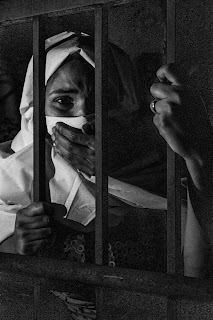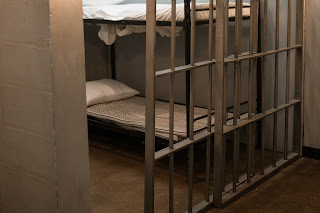Identifying Your Claim: Common Eighth Amendment Violations for LWOP Inmates
Identifying Your Claim: Common Eighth Amendment Violations for LWOP Inmates
For those serving Life Without Parole (LWOP), the sentence is the punishment, not the conditions of confinement. The Eighth Amendment’s prohibition on “cruel and unusual punishments” protects your fundamental right to humane treatment, regardless of your sentence. Understanding how to identify a valid legal claim is the first step toward challenging inhumane conditions. Below are the most common types of Eighth Amendment violations faced by LWOP inmates.
Failure to Protect
Prison officials have a constitutional duty to protect you from violence from other inmates or staff. A valid claim requires proving you faced a “substantial risk of serious harm” and that officials knew of this risk but acted with “deliberate indifference.”
Known Threats: A threat is “known” if you have personally and specifically informed an officer of a credible threat, if there is a history of violence between you and another person, or if the risk is so obvious (e.g., being placed in a known gang-dominated unit) that officials should have been aware of it. General fear is not enough.
Documenting Requests: Verbally telling an officer is not sufficient. You must file formal requests for protective custody, kites to your counselor or the inspector, and formal grievances. This creates the essential paper trail proving you put officials on notice.
Inadequate Medical Care
The state must provide adequate medical care for serious health needs. This does not mean you are entitled to the best care available, but you cannot be denied essential treatment.
Serious Medical Need: A “serious” need is a condition diagnosed by a physician as requiring treatment, or one so obvious that even a layperson would recognize the necessity for a doctor’s care (e.g., a broken bone, chest pains, unmanaged diabetes, a growing tumor). Chronic pain and degenerative conditions also qualify. A minor scratch or a temporary headache does not.
Deliberate Indifference: This is shown through blatant examples: delays in treatment that cause lasting harm; the denial of prescribed medication; or ignoring a doctor’s orders for surgery, a specialist, or a specific diet. Repeated sick call requests that go unanswered are strong evidence.
Inadequate Mental Health Care
For LWOP inmates, the profound hopelessness and despair of a lifetime in prison can create severe mental health crises. The state has a parallel duty to provide care for serious mental illness.
Unique Challenges: Courts are increasingly recognizing that the permanence of an LWOP sentence exacerbates mental illness. Conditions like major depression, psychosis, and suicidal ideation are considered serious medical needs.
Forming a Claim: Placing a suicidal inmate on “suicide watch” but providing no actual therapy can be indifference. So can a systemic lack of access to therapy or psychiatric care, or the improper administration of medication—either by withholding it or over-medicating as a means of control.
Use of Excessive Force
Officers may use force to maintain order and security. However, force used maliciously and sadistically to cause harm violates the Eighth Amendment.
Necessary vs. Malicious Force: Force applied in good faith during a riot or to restrain a disruptive inmate is typically justified. However, force applied after you are fully restrained, as punishment for a prior incident, or grossly disproportionate to the situation is excessive. The core question is the officer’s intent: was it to restore order, or to cause harm?
Conditions of Confinement
Prison conditions alone can constitute cruel and unusual punishment when they deprive you of “the minimal civilized measure of life’s necessities.”
Totality of Conditions: A single issue might not be enough, but combined conditions can create a unconstitutional environment. This includes extreme temperatures (no heat in winter, excessive heat in summer with no ventilation), filthy and unsanitary conditions (feces, mold, vermin), and a lack of basic hygiene (being denied soap, toilet paper, or functioning toilets).
Prolonged Solitary Confinement: This is a primary battleground for LWOP inmates. While short-term segregation for disciplinary reasons is permitted, being held in restrictive housing for years or even decades has been recognized by some courts as psychologically devastating. For an inmate already facing a lifetime in prison, being subjected to extreme social isolation and sensory deprivation with no hope of release can be considered a violation of the Eighth Amendment, as it strips the sentence of any rehabilitative or human purpose and imposes a severe extra layer of punishment.
If you recognize any of these conditions, you may have a viable claim. The next step is to meticulously document the abuse and exhaust all internal grievance procedures, building the foundation to assert your rights in a court of law.




Comments
Post a Comment